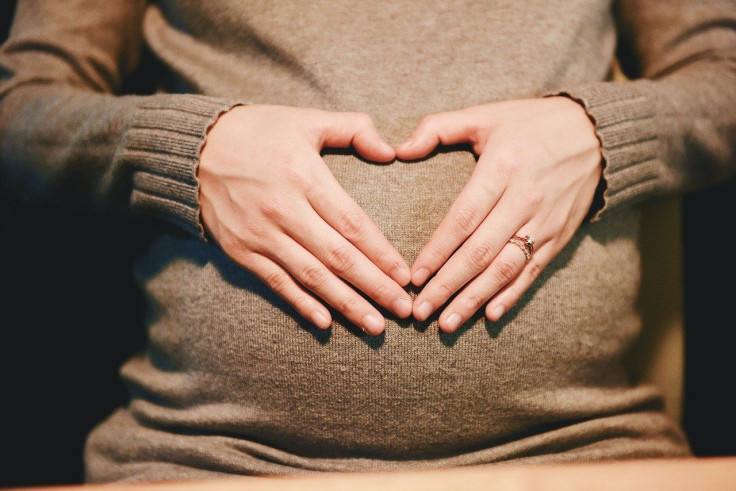COVID-19: Symptomatic Pregnant Women More Likely To Face Complications, Adverse Outcomes, Studies Find
KEY POINTS
- Two studies looked at the effects of COVID-19 on pregnant women
- Pregnant mothers with symptomatic COVID-19 had a higher percentage of emergency complications, researchers found
- The risk for adverse outcomes in symptomatic women was high compared to asymptomatic groups
Pregnant COVID-19 patients with symptoms can be more at risk of developing complications compared to those who are asymptomatic, two new studies have found.
For a new study, presented at the Anesthesiology 2021 Annual meeting this weekend, the researchers looked at the data on pregnant women from March to September 2020, the American Society of Anesthesiologists noted in a news release. The women were aged 16 to 45 and had tested positive for COVID-19 when they delivered. Of the 101 women included in the study, 31 were symptomatic while the rest were asymptomatic.
The symptoms included fever (nearly half of them experienced it), cough, shortness of breath, chills and chest pain.
"We wanted to provide insight into a single institution's experience on how labor and delivery may be affected by the virus as well as the baby's condition after birth," study lead Kristine Lane and senior author Rovnat Babazade, University of Texas Medical Branch, Galveston, said.
The researchers found that 58% of those with symptomatic COVID-19 had their deliveries under emergency circumstances compared to 46% of those with asymptomatic infections. The symptomatic mothers were also more likely to experience complications such as decreased fetal movement or stopping or slowing of labor, the organization noted, while their babies needed to be admitted to the intensive care unit and required oxygen support.
Furthermore, the cesarean delivery rate was higher among both symptomatic and asymptomatic mothers (64.5% and 62% respectively) compared to the average C-section delivery rate (31.7%) in the U.S.
"COVID-19 has severe systemic effects on the body, especially symptomatic patients," Lane noted in the news release. "It is possible that these effects are amplified in pregnant mothers, who have increased fetal and maternal oxygen demands."
Lane further explained that the higher cesarean delivery rates may be because of doctors "proactively" recommending the procedure as a cautionary measure due to the virus' "unpredictable nature."
The results are in line with that of another study, which was published Sunday in the Journal of Maternal-Fetal & Neonatal Medicine, CNN reported. In the study, researchers looked at the records of more than 2,400 women who delivered at a hospital in Israel during the same time period.
The goal of the study was to look at how COVID-19 will affect obstetric outcomes depending on the symptom status "at or near term," the researchers said.
"We found that COVID-19-positive parturients had higher rates of composite adverse outcomes than healthy parturients, with symptomatic women having higher rates of adverse outcomes than asymptomatic women," the researchers wrote.
These studies come after the Centers for Disease Control and Prevention (CDC) recommended pregnant women to get the COVID-19 vaccine, noting that "the benefits of vaccination outweigh known or potential risks."

© Copyright IBTimes 2025. All rights reserved.






















